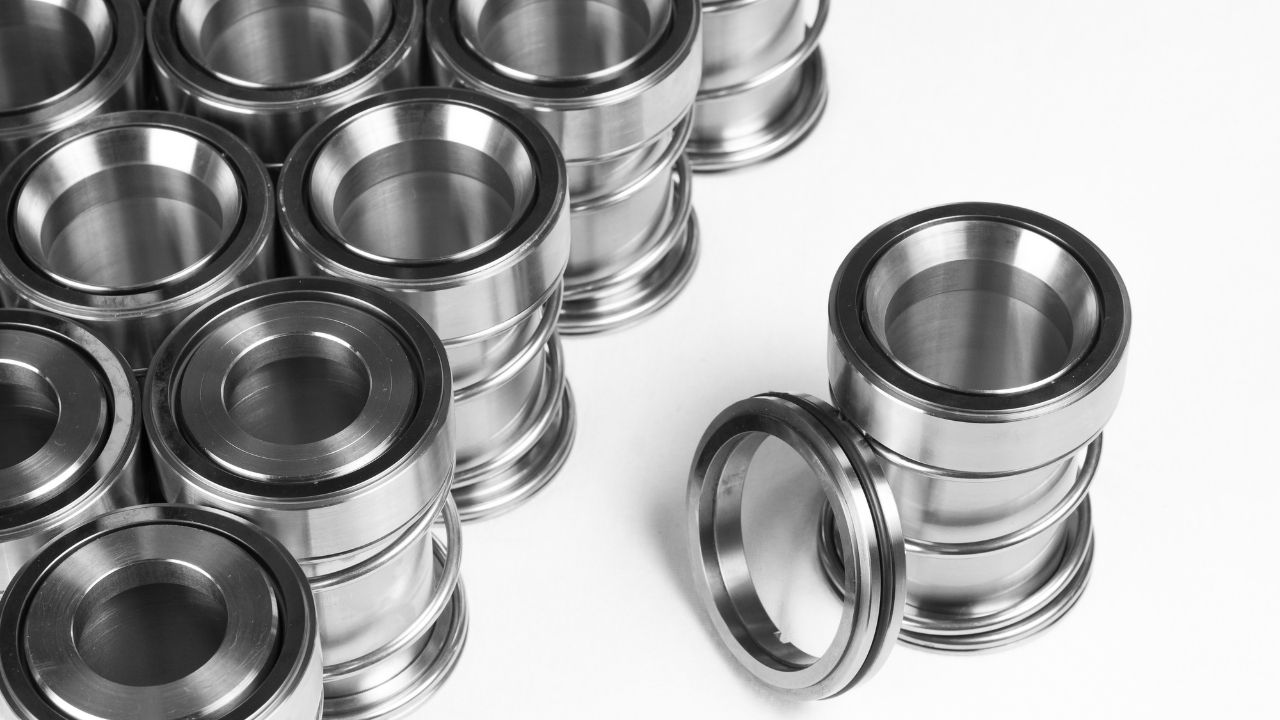Latest trends in mechanical seals and sealing industry
Latest trends in mechanical seals and sealing industry
Sealomech a world class rotating equipment technologist for process plants meet all international standards. Our seals range exceeds than any other seal manufacturer

The sealing industry had been experiencing several trends that were likely to continue shaping its trajectory. Here are some of the latest trends in the sealing industry:
- Sustainability: Increasing awareness and regulations regarding environmental sustainability have pushed the sealing industry to develop eco-friendly solutions. This includes using materials that are recyclable or biodegradable, reducing waste in manufacturing processes, and optimizing packaging to minimize environmental impact.
- Advanced Materials: Technological advancements have led to the development of new sealing materials with improved properties such as enhanced durability, chemical resistance, and performance under extreme conditions. Materials like fluoropolymers, thermoplastic elastomers, and advanced composites are gaining popularity in various sealing applications.
- Digitalization and Industry 4.0: Like many other industries, the sealing industry is embracing digitalization and automation to improve efficiency, reduce costs, and enhance product quality. This includes the adoption of technologies such as IoT (Internet of Things), predictive maintenance, digital twins, and AI-driven analytics to optimize manufacturing processes and product performance.
- Customization and Personalization: There's a growing demand for customized sealing solutions tailored to specific applications and requirements. Manufacturers are investing in flexible production systems and digital design tools to efficiently deliver bespoke sealing solutions to their customers.
- Focus on Reliability and Safety: In industries where sealing plays a critical role in ensuring product integrity and safety, there's an increasing emphasis on reliability and compliance with industry standards and regulations. This includes rigorous testing and quality control measures to ensure that sealing products meet performance requirements and adhere to relevant safety standards.
- Remote Monitoring and Maintenance: Remote monitoring and predictive maintenance technologies are being adopted to monitor the condition of sealing systems in real-time, detect potential issues early, and schedule maintenance proactively. This helps to minimize downtime, optimize equipment performance, and extend the lifespan of sealing components.
- Globalization and Market Expansion: The sealing industry continues to expand globally, driven by factors such as urbanization, industrialization, and infrastructure development in emerging markets. Manufacturers are establishing strategic partnerships and expanding their presence in key regions to capitalize on new growth opportunities.
- Health and Hygiene: In light of recent global health crises, there's heightened awareness of the importance of hygiene and cleanliness in various applications, including food processing, pharmaceuticals, and healthcare. Sealing solutions that offer easy cleanability, resistance to microbial growth, and compliance with sanitary standards are in high demand.
These trends are likely to continue shaping the sealing industry in the coming years as manufacturers strive to innovate, adapt to changing market dynamics, and meet the evolving needs of customers across diverse sectors.
The mechanical seals industry was also experiencing several trends that were likely to continue shaping its trajectory. Here are some of the latest trends in the mechanical seals industry:
- Sustainability: Similar to the broader sealing industry, sustainability is a significant trend in the mechanical seals sector. Companies are focusing on developing environmentally friendly materials and manufacturing processes, reducing waste, and improving energy efficiency in seal designs.
- Enhanced Performance and Reliability: There is a continuous drive towards improving the performance and reliability of mechanical seals, especially in demanding applications such as those found in the oil and gas, chemical processing, and power generation industries. This includes advancements in seal materials, design optimization, and tighter quality control measures.
- Smart Seals and Predictive Maintenance: The integration of IoT (Internet of Things) technology and sensor systems into mechanical seals allows for real-time monitoring of seal performance and condition. This enables predictive maintenance strategies, where potential issues can be identified early, minimizing downtime and reducing the risk of catastrophic seal failure.
- Customization and Application-specific Solutions: There's an increasing demand for mechanical seals that are tailored to specific applications and operating conditions. Manufacturers are offering customizable seal designs and materials to meet the unique requirements of various industries, such as high-pressure/high-temperature applications, corrosive environments, and hygienic processes.
- Digitalization and Industry 4.0: Digitalization is transforming the mechanical seals industry, enabling remote monitoring, data analytics, and predictive modeling to optimize seal performance and maintenance. Industry 4.0 technologies such as AI (Artificial Intelligence), machine learning, and digital twins are being leveraged to improve efficiency and reliability throughout the lifecycle of mechanical seals.
- Focus on Safety and Compliance: With stringent safety regulations and standards in industries such as oil and gas, chemical processing, and nuclear power, there's an increased focus on ensuring that mechanical seals meet or exceed safety requirements. Manufacturers are investing in rigorous testing, certification, and compliance with industry standards to ensure the integrity and reliability of their products.
- Energy Efficiency: Energy-efficient seal designs and materials are gaining importance as industries seek to minimize energy consumption and reduce operating costs. Mechanical seals with low friction coefficients, optimized sealing faces, and improved fluid dynamics help to improve equipment efficiency and reduce environmental impact.
- Global Market Expansion: The mechanical seals industry is expanding globally, driven by industrial growth in emerging markets and the increasing adoption of advanced sealing solutions in developed regions. Companies are expanding their geographic presence and forming strategic partnerships to capitalize on new market opportunities and strengthen their competitive position.
These trends indicate a continued evolution of the mechanical seals industry towards more efficient, reliable, and sustainable sealing solutions that address the diverse needs of modern industrial applications.

